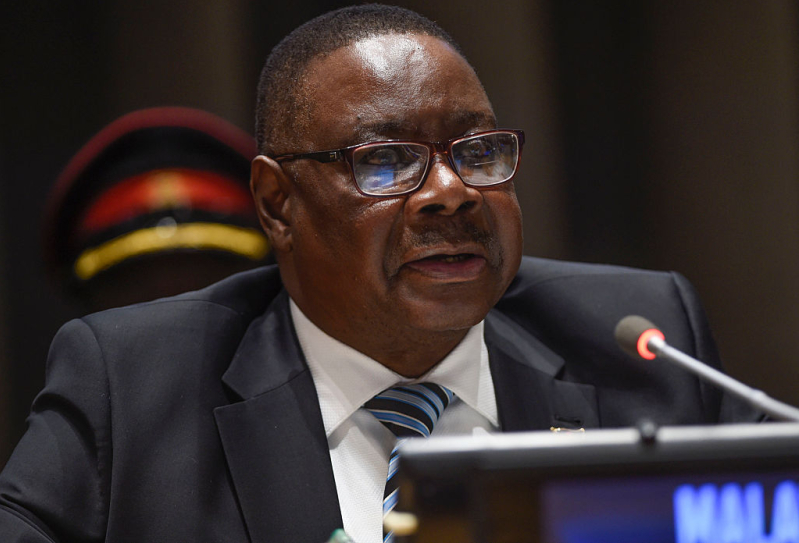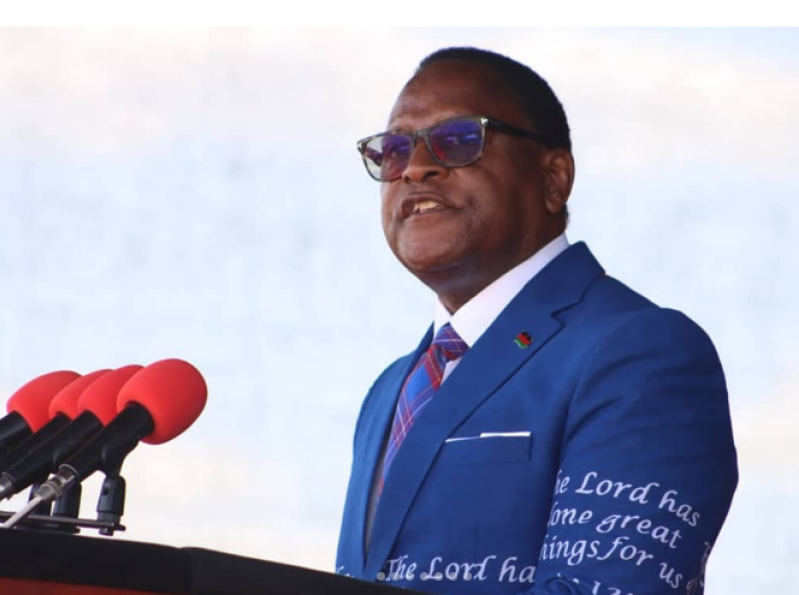
Malawi’s Electoral Commission on Wednesday declared former President Peter Mutharika the winner of the country’s presidential election, unseating incumbent President Lazarus Chakwera in one of Africa’s rare defeats for a sitting head of state.
Mutharika, 85, who previously led Malawi from 2014 to 2020, returns to power after securing 57% of the vote against Chakwera’s 33%, according to final results. Chakwera, 70, conceded even before the official announcement, acknowledging that partial tallies already showed Mutharika had built an “insurmountable lead.” His concession makes him one of the few African incumbents in recent memory to peacefully hand over power after a single term.
"From those official results," said Chakwera in a televised speech, "It was clear that my main rival, His Excellency Peter Mutharika of the Democratic Progressive Party had already secured an insurmountable lead and is the presumptive winner of the presidential election."
President Chakwera, 70, went on to tell the nation that he had telephoned Mutharika, to congratulate him. He explained that he had conceded defeat because he had accepted the provisional, partial results announced by the Electoral Commission.
"I know for many of you that supported my campaign for re-election, this outcome is disappointing...but it is only right that I concede defeat out of respect for your collective will as citizens and out of respect for the constitution," he said.
The final results showed that Mutharika had won 57% of the vote compared to President Chakwera who got 33%.

Chakwera defeated Mutharika in a rerun election held in June 2020, securing 58% of the vote, following a historic judicial intervention that annulled Mutharika's reelection due to widespread irregularities, including the use of correction fluid on tally sheets.
Chakwera's pledge to fight corruption, fix the economy, create jobs, and restore the dignity of citizens was bolstered by his image as an evangelical Christian leader who had served as an Assemblies of God minister until he transitioned to politics in 2013. Chakwera, who holds a Doctor of Ministry degree from Trinity Evangelical Divinity School (TEDS), framed his move into politics as a "divine calling", claiming that God was extending his ministry so that he could "pastor a whole nation".
However, five years later, voters judged Chakwera harshly on his record. The 2025 election was overwhelmingly dominated by the dire state of the economy.
Since 2020, Malawi has been experiencing a protracted economic crisis, with average GDP growth rates dropping to 2.2% (below the population growth rate of 2.6%), leading to declining incomes for the average Malawian.
According to a World Bank report, inflation soared to around 30%, with high commodity prices, rising unemployment, and persistent fuel shortages becoming routine features of daily life. The cost of staple goods, including maize and fertilizer, increased dramatically; fertilizer prices alone rose sixfold, threatening food security for millions.
The Church in Malawi, in pastoral letters to congregants before the election, had urged citizens to choose leaders who are “genuinely committed to fulfilling their campaign promises and addressing the pressing economic challenges facing the nation.”
While the government attributed these challenges partly to external shocks like the Russia-Ukraine war and climatic disasters such as Cyclone Freddy and severe droughts, many citizens blamed policy failures. Critics pointed to significant policy shortfalls, including an overvalued official exchange rate, unsustainable borrowing practices, and restrictive trade policies that have exacerbated the country’s vulnerability. Fiscal deficits were among the highest in Africa, largely financed by costly domestic borrowing.
Furthermore, corruption remained a significant area of voter disappointment. Despite Chakwera’s anti-graft pledges, critics argued that enforcement was selective, and high-profile scandals eroded public confidence. The inability to deliver on major campaign promises, such as creating one million jobs, fueled widespread disillusionment, especially among the youth who had once formed a strong base of support.
Some analysts suggested that the gap between Chakwera’s pastoral image and the harsh economic realities eroded public trust. There was also a critique that a leadership style rooted in charismatic, top-down church structures might have translated poorly to democratic governance, resulting in a reluctance to embrace accountability or offer real policy solutions.
Despite these widespread failures, Chakwera’s tenure saw some notable human development outcomes. Malawi recorded a dramatic drop in under-five mortality, falling to 48 deaths per 1,000 live births in 2024. Chakwera’s government also highlighted infrastructure projects, digital reforms, and initiatives like savings accounts for newborns as evidence of a long-term vision.
Ultimately, the anti-incumbent wave sweeping across Africa, driven by economic grievances and corruption fatigue, proved insurmountable for Chakwera. Voters, faced with a choice between a "disappointing incumbent" and his 85-year-old predecessor Peter Mutharika, whom they had previously rejected, opted to elect the former president.






